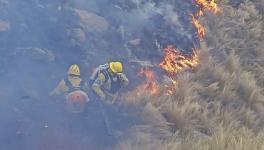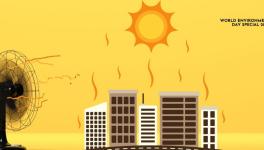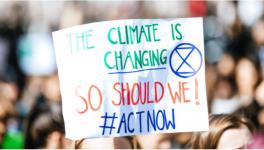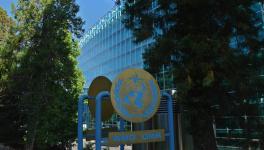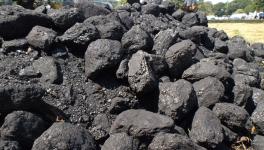Worldwide Over 11,000 Scientists Declare Global Climate Emergency

Image Courtesy: scroll.in
New Delhi: Declaring a global climate emergency, more than 11,000 scientists from 153 countries have warned that "untold suffering" is inevitable without deep and lasting shifts in human activities that contribute to greenhouse gas emissions and other factors related to climate change.
In a paper published on Tuesday in the peer-reviewed journal, BioScience, 11,258 signatories, including 69 from India, present trends in climate change and provide a set of effective mitigating actions.
The declaration of a climate emergency is based on scientific analysis of more than 40 years of publicly available data covering a broad range of measures, including energy use, surface temperature, population growth, land clearing, deforestation, polar ice mass, fertility rates, gross domestic product and carbon emissions.
"Despite 40 years of major global negotiations, we have continued to conduct business as usual and have failed to address this crisis," said William J Ripple, a professor of ecology in the Oregon State University (OSU) College of Forestry in the US.
"Climate change has arrived and is accelerating faster than many scientists expected," Ripple said in a statement.
The global coalition of scientists led by Ripple and Christopher Wolf from OSU point to six areas in which humanity should take immediate steps to slow down the effects of a warming planet.
These are energy, short-lived pollutants, nature, food, economy, and population.
“The basic quest for all of us is to provide adequate food and energy supplies and sustain it. For that we are exploiting our nature to the best of our ability, which has caused tremendous damage to the nature,” Gyan Prakash Sharma, assistant professor at the University of Delhi and one of the signatories, told PTI.
Referring to the India context, he said many things, including the monsoon, have changed in the environmental pattern.
"There is a tremendous change in the monsoon pattern across the country, which has triggered the changes in agricultural practices,” Sharma explained.
According to the paper, mitigating and adapting to climate change while honouring the diversity of humans entails major transformations in the ways global society functions and interacts with natural ecosystems.
The signatories said they are encouraged by the recent surge of concern. "Governmental bodies are making climate emergency declarations. Schoolchildren are striking, according to the declaration... Ecocide lawsuits are proceeding in the courts. Grassroots citizen movements are demanding change, and many countries, states and provinces, cities, and businesses are responding," they said.
"As an Alliance of World Scientists, we stand ready to assist decision makers in a just transition to a sustainable and equitable future," the scientists added.
According to Thomas Newsome at the University of Sydney, scientists have a moral obligation to warn humanity of any great threat.
"From the data we have, it is clear we are facing a climate emergency," Newsome said in a statement.
Graphics in the paper illustrate several key climate-change indicators and factors over the 40 years since scientists from 50 nations met at the First World Climate Conference in Geneva in 1979.
The scientists noted that multiple global assemblies in recent decades have agreed that urgent action is essential, but greenhouse gas emissions are still rapidly rising.
Other ominous signs from human activities include sustained increases in per-capita meat production, global tree cover loss and number of airline passengers, they explained.
There are some encouraging signs -- such as decreases in global birth rates, decelerated forest loss in the Brazilian Amazon and increases in wind and solar power -- but even these are tinged with worry, the scientists noted.
The decline in birth rates has slowed over the last 20 years, for example, and the pace of Amazon forest loss appears to be starting to increase again, they wrote.
"Global surface temperature, ocean heat content, extreme weather and its costs, sea level, ocean acidity, and area burned in the United States are all rising," Ripple said.
"Globally, ice is rapidly disappearing as demonstrated by decreases in minimum summer Arctic sea ice, Greenland and Antarctic ice sheets, and glacier thickness. All of these rapid changes highlight the urgent need for action," he said.
Get the latest reports & analysis with people's perspective on Protests, movements & deep analytical videos, discussions of the current affairs in your Telegram app. Subscribe to NewsClick's Telegram channel & get Real-Time updates on stories, as they get published on our website.











